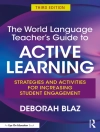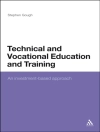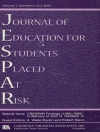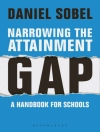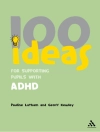What makes a powerful and results-driven Professional Learning Community (PLC)? The answer is collaborative work that expands the emphasis on student learning and leverages individual teacher efficacy into collective teacher efficacy.
PLC+: Better Decisions and Greater Impact by Design calls for strong and effective PLCs
plus—and that plus is
YOU. Until now, the PLC movement has been focused almost exclusively on students and what they were or were not learning. But keeping student learning at the forefront requires that we also recognize the vital role that you play in the equation of teaching and learning. This means that PLCs must take on two additional challenges: maximizing your individual expertise, while harnessing the power of the collaborative expertise you can develop with your peers.
PLC+ is grounded in four cross-cutting themes—a focus on equity of access and opportunity, high expectations for all students, a commitment to building individual self-efficacy and the collective efficacy of the professional learning community and effective team activation and facilitation to move from discussion to action. The PLC+ framework supports educators in considering five essential questions as they work together to improve student learning:
The PLC+ framework leads educators to question practices as well as outcomes. It broadens the focus on student learning to encompass educational equity and teaching efficacy, and, in doing so, it leads educators to plan and implement learning communities that maximize individual expertise while harnessing the power of collaborative efficacy.
Inhoudsopgave
List of Videos
About the Authors
Acknowledgments
INTRODUCTION
So What Is a PLC?
The Story Behind PLCs
Adding the Examination of Teaching Practice to the PLC Story
The Five Key Questions
What You Will Find in This Book
1. PLC+: The Plus Is YOU
Teacher Credibility and Efficacy: The Foundation of the Strong PLC+
Facilitating Collaboration: Making the Plus Count
Building Collective Efficacy
The Hope for the PLC+
Conclusion
2. Question 1: Where Are We Going?
The Story Behind the Question
A PLC+ Team in Action
Analyzing the Standard(s)/Curriculum Expectations
The Role of Teacher Clarity in “Where Are We Going?”
Developing Learning Intentions and Success Criteria
It’s Not Just High School English
Moving Beyond a Single Day
Autonomy in Teaching
The Professional Learning of a PLC+
Conclusion
3. Question 2: Where Are We Now?
The Story Behind the Question
A PLC+ Team in Action
Deficit Thinking
Initial Assessments
Analyzing for Equity Gaps
Data Collection
Data Analysis Protocols
Addressing Bias in Data Collection and Analysis
Identifying the Common Challenge
Conclusion
4. Question 3: How Do We Move Learning Forward?
The Story Behind the Question
A PLC+ Team in Action
Evidence-Based Instructional Practices
Assignment Analysis
Compensatory and Adaptive Approaches
Moving Teacher Learning Forward
Learning Walks
Using Microteaching to Improve Teaching and Learning
Conclusion
5. Question 4: What Did We Learn Today?
The Story Behind the Question
A PLC+ Team in Action
Reflection
Expert Noticing
Common Assessments as Triggers for Reflection
Determining Impact of Instruction
Progress Versus Achievement
Conclusion
6. Question 5: Who Benefited and Who Did Not Benefit?
The Story Behind the Question
A PLC+ Team in Action
Equity Audit
Response to Intervention
Universal Screening and Ongoing Assessment
High-Quality Tier 1 Instruction
Supplemental and Intensive Interventions
Meeting the Needs of All Learners
The Professional Learning of PLC+
Conclusion
7. The Next Question in the PLC+ Framework
After the Fifth Question
Beyond a Single PLC+
References
Index
Over de auteur
Dave Nagel has been a professional developer and educational consultant both nationally and internationally since 2003 and has done so as his primary job in education since 2008. Prior was a middle and high school science teacher and administrator in a large district in Indianapolis. As a school leader at Ben Davis High School (enrollment 3000 students) Dave was instrumental in developing a focused plan for differentiated goals for students based on specific proficiency measures which supported the school in improving its graduation rate 14% in just over 4 years. Dave’s primary areas of expertise are in the areas of effective teacher and leader collaboration, assessment and feedback, and specifically effective grading actions both at the school and classroom level. He has been working specifically with Professor John Hattie’s Visible Learning research since 2011 that is a driving force for all of his work with teachers, coaches, and administrators. He has authored 5 books previous to this one, including four within the PLC+ series of publications (Corwin). Published multiple times in various publications such as Principal Leadership and Educational Leadership, Dave has also presented at various national conferences.Dave has a strong moral aspect, strives to be very relatable and practical when working with people, and has a savvy sense of humor that supports him in his life and work. Dave stays very busy with his beautiful and supportive wife, Kristen, and three boys (ages 20, 15, and 13). He acknowledges every day that the Lord guides his actions and is the driving force in his life. Dave is an independent consultant for Corwin Press and is the owner of NZJ Learning LLC (named after his three boys) and the Founder of The Center for Collaborative Expertise.



